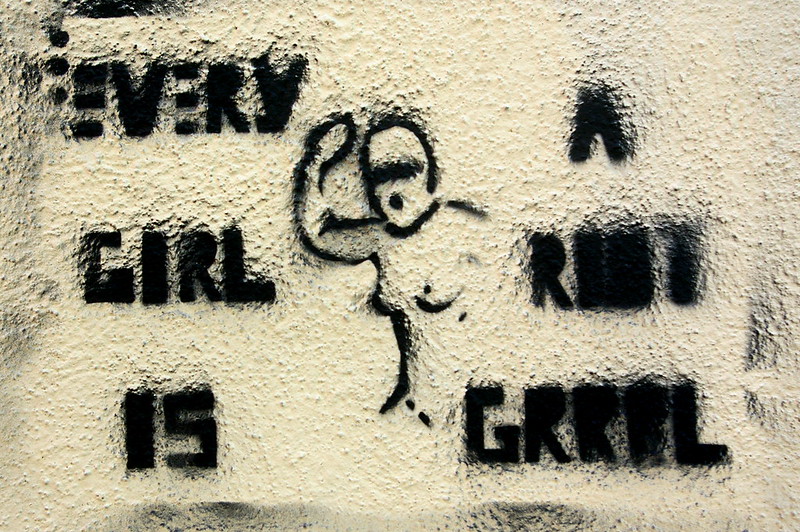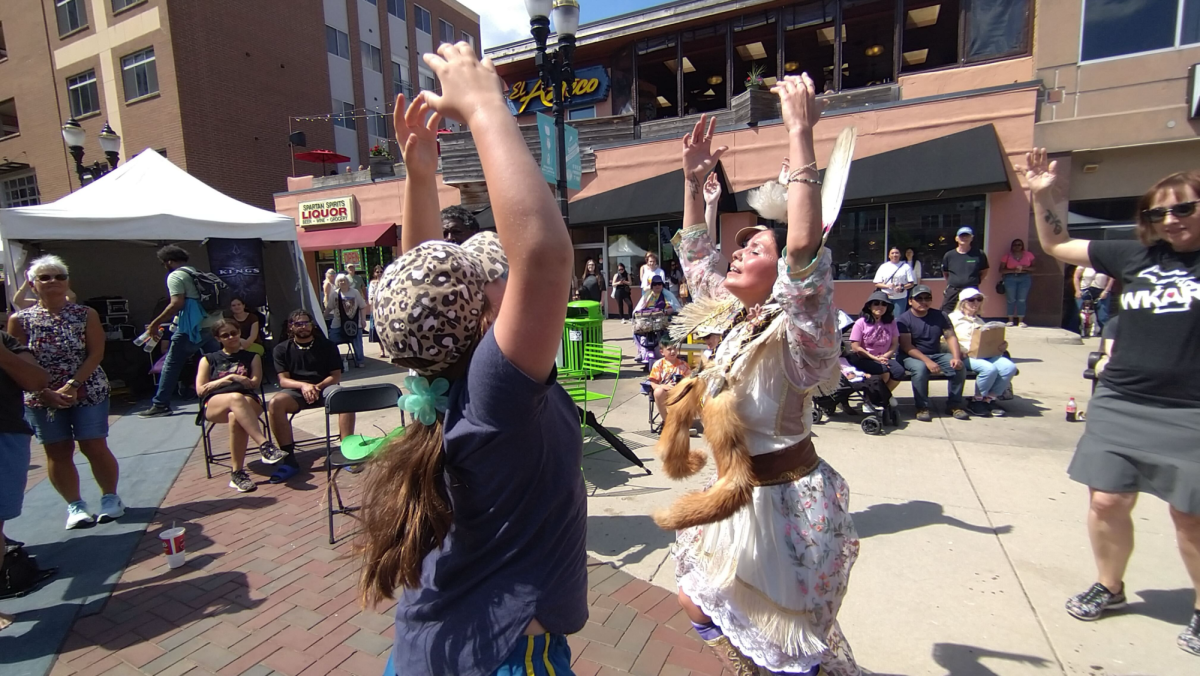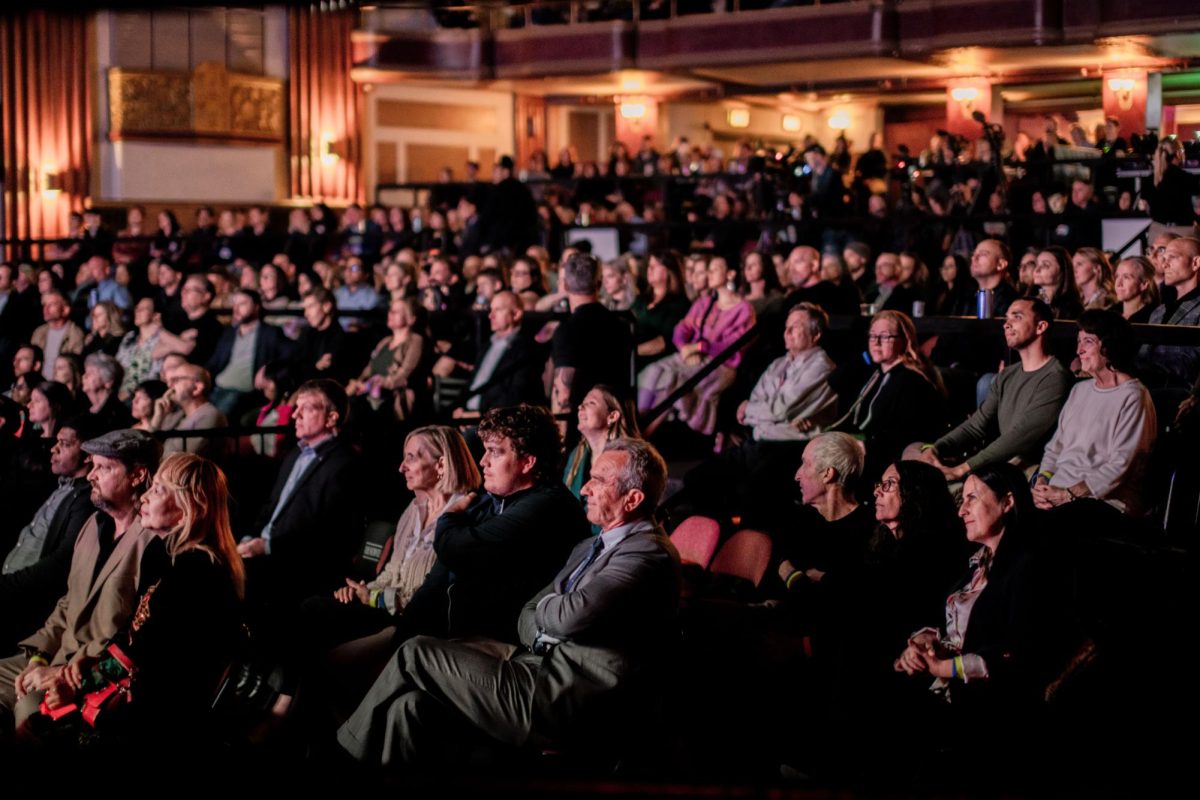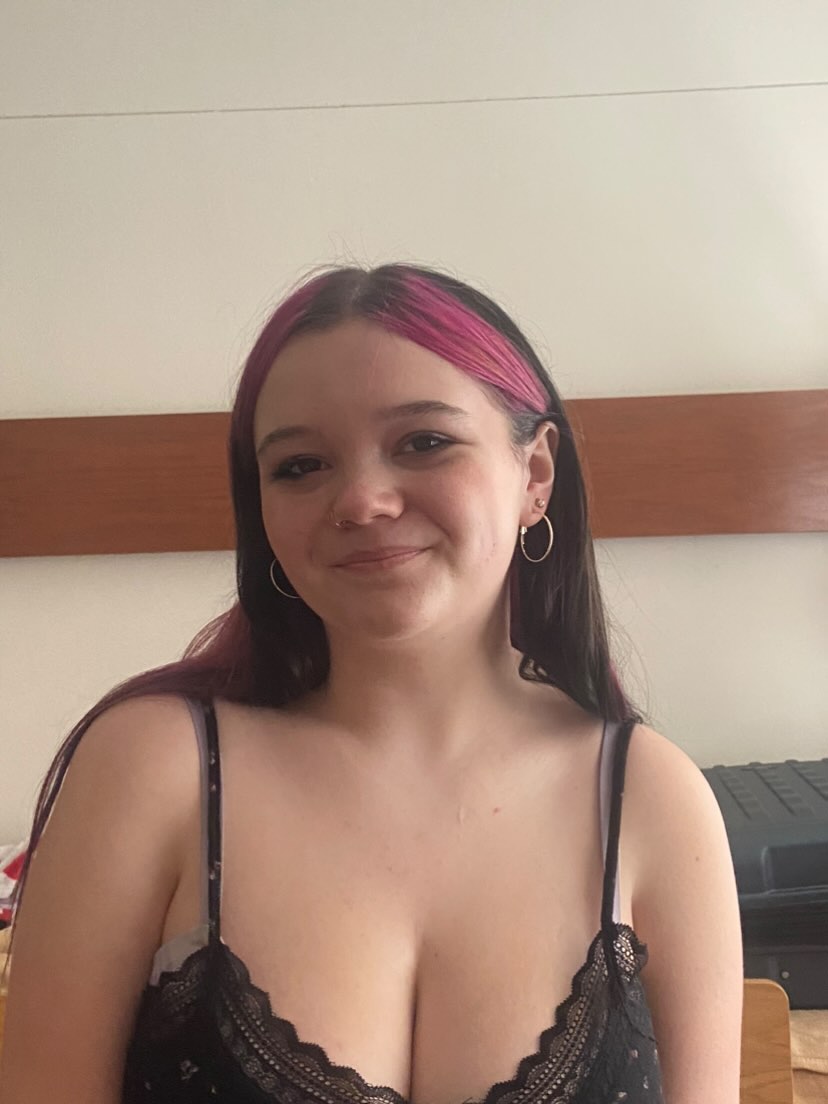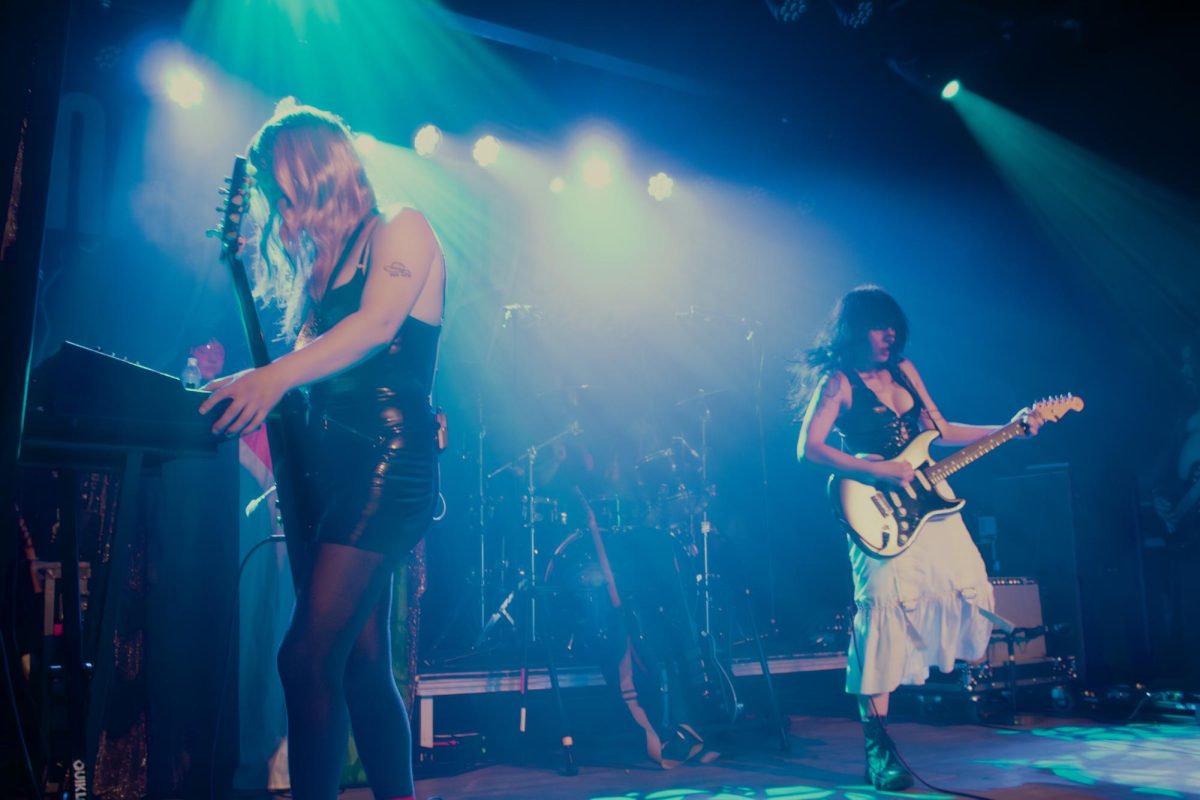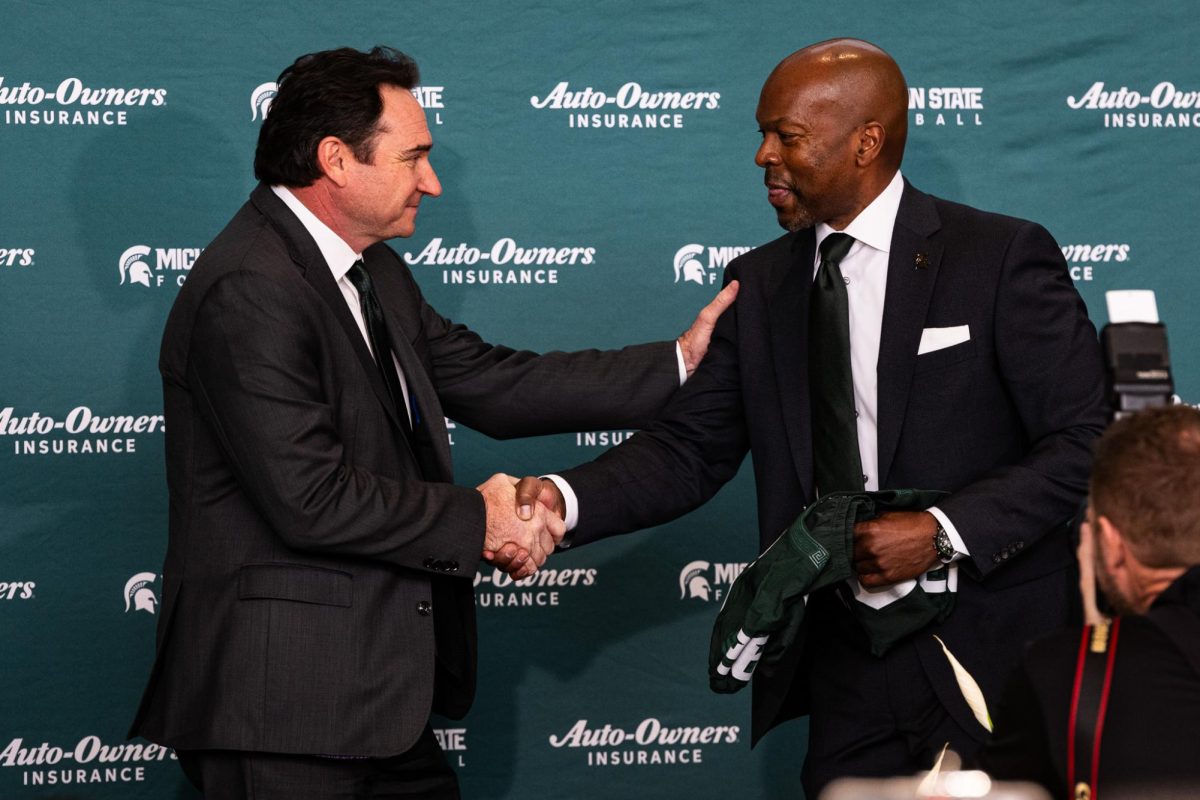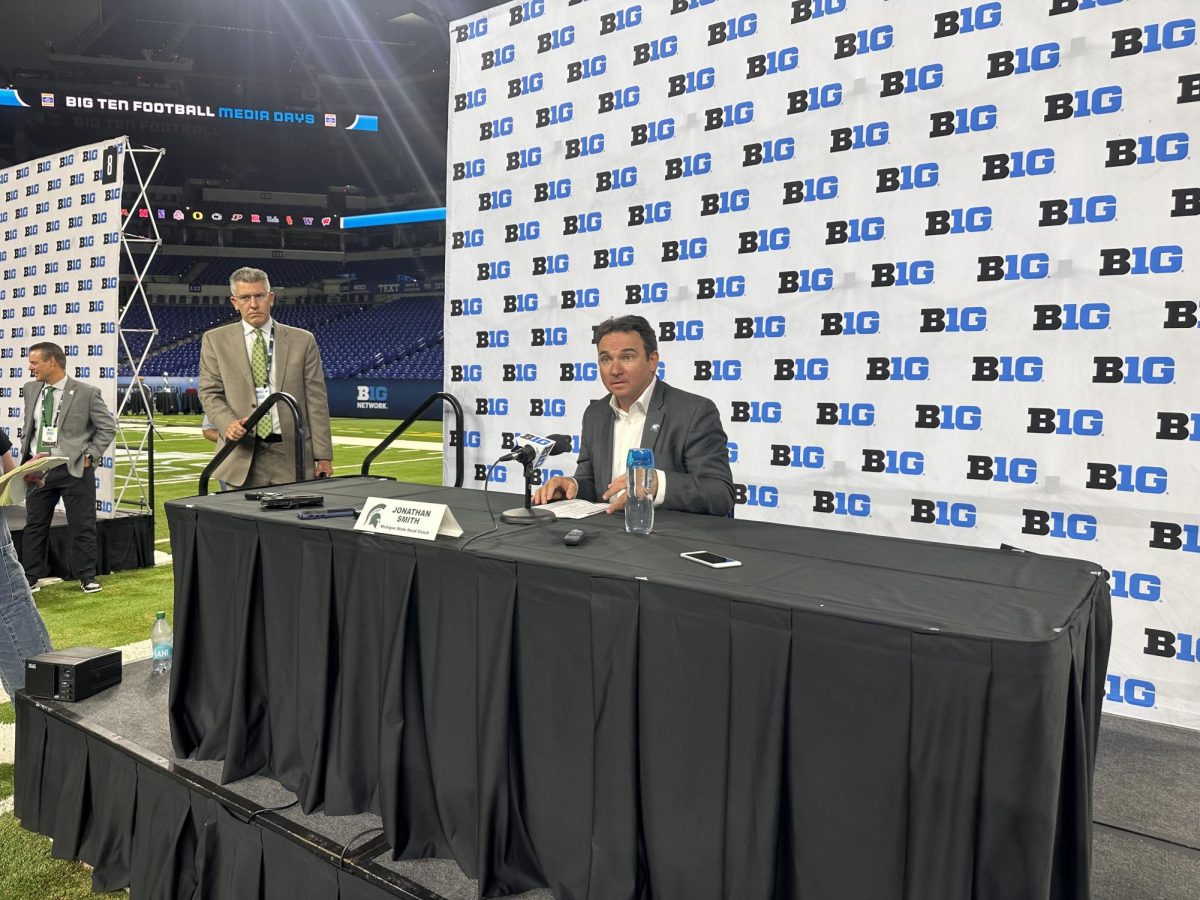Impact Mixtape | “Riot Grrrl” by Logan Juncaj
“Riot grrrl” by gaelx is licensed under CC BY-SA 2.0 .
March 30, 2023
Many musical spaces have been historically dominated by men, and punk rock is no exception. Gender bias is pervasive and entrenched in our society and the riot grrrl movement emerged as a way to push back against the exclusion of women within the genre. Centering the needs of a new generation on direct-action strategies, witty mantras and slogans like “girl power” and “support girl love,” riot grrrl was not just a movement of music, but also a political movement as it became one of the most visible branches of third-wave feminism. Propelling themselves into the punk rock genre with a DIY mindset and unapologetically creating their own space, the riot grrrl movement is one of the most important feminist movements in recent music history.
The riot grrrl movement emerged in the early 1990s in Washington D.C. and Olympia, Washington. The term “riot grrrl” stems from the term “girl riot,” created by Allison Wolfe and Molly Neuman, members of the feminist-punk band Bratmobile. The women decided they wanted to start a “girl riot” against a society that they felt offered no validation of women’s experiences. Fanzine editor and feminist activist, Jen Smith then created the term “grrrl” and later “riot grrrl” through the expression “angry grrrl zines” devised by feminist activist and founding member of the band Bikini Kill, Tobi Vail. Early participants of the movement deliberately used “grrrl” instead of “girl” to remove the passive association with the word “girl” as well as to display the anger behind the movement, reminiscent of a growl.
The riot grrrl movement encouraged women to engage in cultural production by creating their own music and fanzines, rather than following existing models. Many of the songs centered on topics that were considered taboo in mainstream society including rape, incest and eating disorders; many of the bands utilized music to express antiracist viewpoints and their hatred toward the patriarchy. Many riot grrrl lyrics demonstrate frustration with one dimensional views of women and encourage women to overcome sexist stereotypes.
By the late 1990s “girl power,” a slogan that originated in the pages of riot grrrl zines, started to become commodified by pop sensations like the Spice Girls. Although many feminist-punk bands still exist today, this transition of riot grrrl beliefs into mainstream media largely marked the end of the movement.
Although the riot grrrl movement may have ended, its message and influence still persist today. As the new millennium began, feminist activism began to expand during the emergence of social media and fourth-wave feminism. Similar to the use of fanzines by members of the riot grrrl movement, well-known movements such as “free the nipple,” “Time’s Up” and “#MeToo” all used the internet to spread their message, gain support and spark change. Fea, Dream Nails, The Regrettes and Bad Cop/Bad Cop are just some of the many acts delivering the ethos of the riot grrrl movement into the 21st century and continuing to fight for gender equality in all spaces, not just the music that they play.
Inspiring and fostering a much more inclusive space for future generations of women in music, it would be greatly misguided to not recognize one of the most important feminist movements in recent music history on Women’s History Month.
There was never any true definition as to what made an act “riot grrrl,” however all of the bands below were active during the 1990s and generally dealt with antiracist and feminist topics. This is a list of essential riot grrrl music — an introduction into the genre and the empowering music that it birthed, not a totality. However if you don’t like the list, make your own. Do it yourself, that’s the whole point. If you can learn anything from the riot grrrl movement, learn that your ideas are valid regardless of race, gender or sexual orientation and that you cannot simply disregard injustices and must instead take it upon yourself to further inclusivity for everyone, everywhere.


